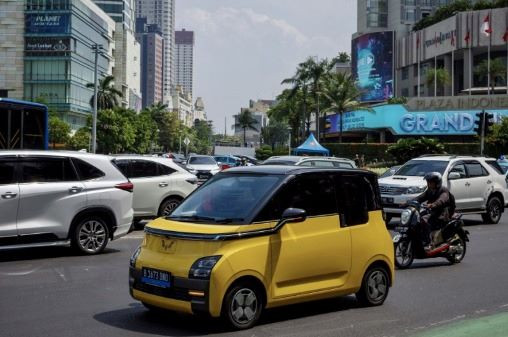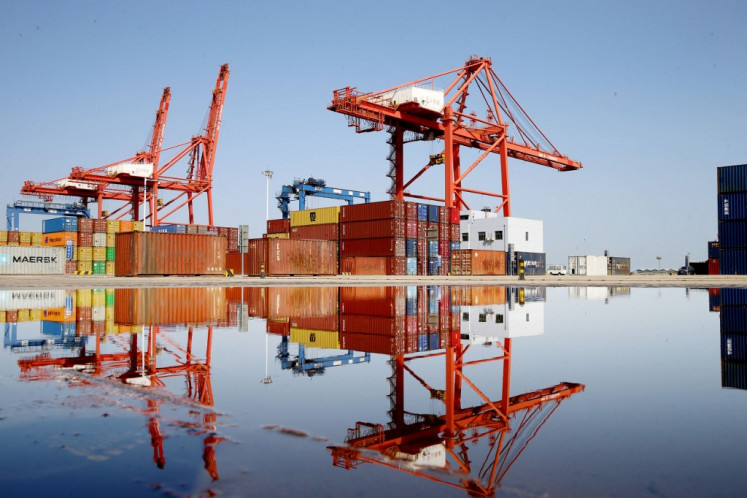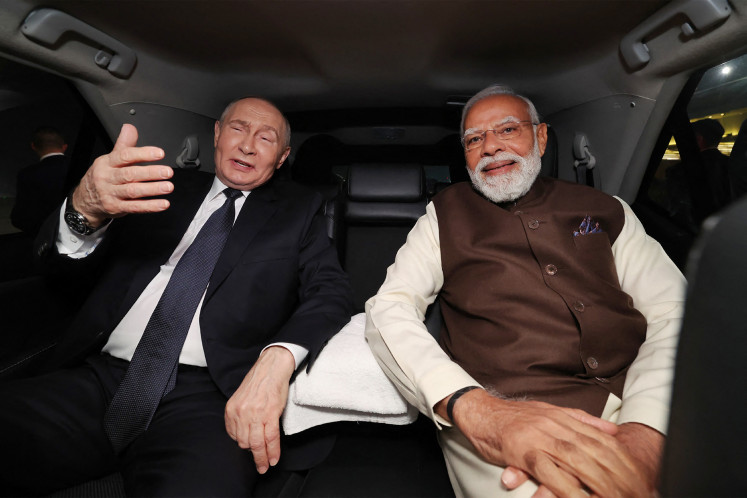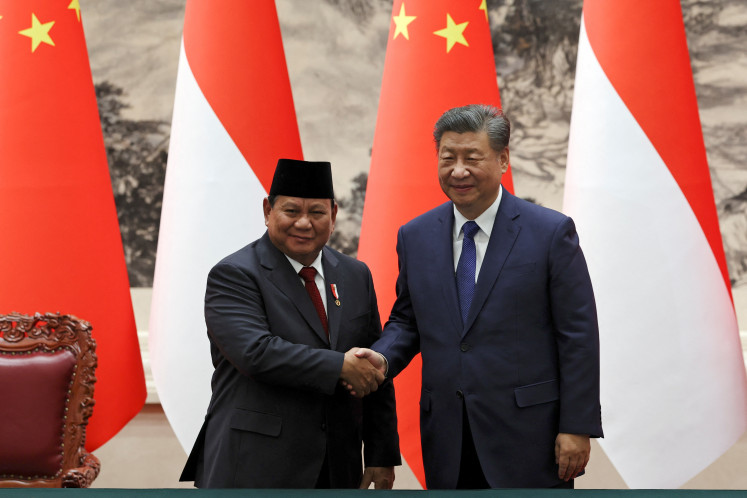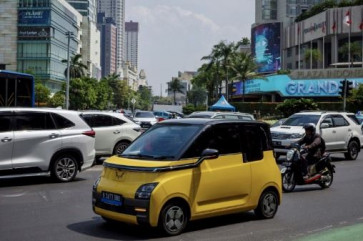Popular Reads
Top Results
Can't find what you're looking for?
View all search resultsPopular Reads
Top Results
Can't find what you're looking for?
View all search resultsChina to cement grip in Southeast Asia EV market amid trade war
With Western countries aiming to distance themselves from China by imposing levies on its EV automakers, Chinese manufacturers are set to expand their presence in other emerging markets, particularly Southeast Asia.
Change text size
Gift Premium Articles
to Anyone
T
he global electric vehicle (EV) industry landscape has intensified, with China solidifying its position as the world champion in the EV space. The International Energy Agency (IEA) reported that China accounted for nearly 60 percent of new electric car registrations globally in 2023, followed by Europe at 25 percent, the United States at 10 percent and the rest of the world accounting for the remaining 5 percent.
While Chinese automakers have entrenched their position in their homegrown market for many years, they have started to spur expansion to other regions. As a result, China experienced a significant surge in the export value of its battery electric vehicles (BEVs), which quadrupled from US$8.59 billion in 2021 to $34.13 billion by 2023.
Chinese EV manufacturers, such as BYD, SAIC Motor Corp-owned MG, Nio, GAC Motor, Li Auto, Geely and Chery, among others, collectively took up 53 percent of the global market share for EVs in 2023. In the same year, Chinese automaker BYD surpassed Tesla as the world's best-selling EV brand.
Fierce competition in the EV market has prompted governments in several jurisdictions, particularly the United States and the European Union, to enact measures to curb Chinese dominance and protect their domestic industries.
On May 14, Washington unveiled tariff hikes on some goods imported from China, including a quadrupling of import duties on Chinese EVs to 100 percent. The Biden administration stated that the new measures aimed to protect American manufacturers and their workers.
The recent Washington regulations will add to a long list of protectionist actions, further escalating tensions between the two economic superpowers. In response, the Chinese Ministry of Commerce stated that the country “firmly opposes” the tariff hike and will take measures to safeguard its own rights and interests.
On June 12, the European Union subsequently planned to implement a similar measure by imposing tariffs ranging from 17 percent to 38 percent for Chinese EVs following the bloc’s investigation of an anti-subsidy probe last year.

